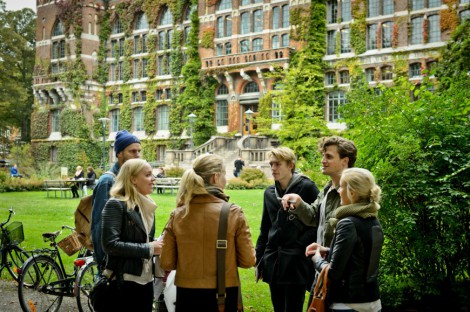Geographies of Innovation and Societal transformation
The link between innovation and societal challenges is of utmost importance in the current policy debate and requires a more in-depth understanding of the interplay between innovation and society at large. This link also calls for a broader understanding of innovation including for instance social innovation and innovation in the public sector. Also, it requires a better understanding of the social and institutional context and processes in which innovation processes unfold. In order to provide students with such knowledge, this specialisation draws together key expertise from multiple disciplines at Lund University. The link between innovation and society becomes especially apparent in relation to key challenges such as:
- Innovation and uneven regional development
- Innovation and sustainability transitions
Regional competitiveness and regional inequalities are major themes in the policy debate and often presented as two sides of a coin. Knowledge-based activities and innovation drive the economy in core areas, while the periphery lags behind. This dichotomy ignores the variegated nature of innovation and the linkages between places, the core and periphery, the north and the south. This ESST specialisation will provide a more nuanced picture. This will help participants to study innovation in different geographical contexts, recognize the linkages between local and global innovation processes, understand how innovation contributes to structural change, and the role of policy at local, national and international levels.
Many of today’s ‘grand challenges’, such as climate change, resource scarcity or environmental degradation call for some sort of radical social and technological change. Especially infrastructure sectors like water, energy, food or transportation are increasingly pressured to transition to a more sustainable mode of operation, as for instance seen in the recent political efforts in many countries to introduce a transition in the energy sector from fossil and nuclear to renewable energy sources (energy transition). However, the transformation of existing, highly institutionalized social structures and technologies has proven to be a rather challenging societal undertaking. Infrastructures are particularly demanding, since they are comprised of technical as well as social elements that are highly intertwined and have co-evolved over a long period of time, which leads to a significant amount of path-dependency and inertia. Therefore, the questions of how socio-technical change unfolds and how a transition towards sustainability can be achieved, have become crucial in politics and academia alike.
Aims of the Specialization
This specialization gives an overview of the most recent theoretical debates in the realm of ‘innovation and uneven development’ and the ‘innovation and sustainability transitions”. It will provide an opportunity to engage with theoretical approaches from different disciplines (e.g. science and technology studies, institutional theory, economic geography and evolutionary economics) that are addressing questions of socio-technical change and innovation. At the same time, the specialization also aims at improving empirical research skills, such as designing and executing an independent thesis project.
Course Structure and Requirements
This specialization run for 6 weeks at the Department of Human Geography in cooperation with CIRLCE, Lund University and consist of 1 lecture and 4 reflexive seminars, peer review exercises, as well as individual work. In the beginning of the course, students are given lectures that introduces specialization. In the remaining of the course students are expected to read core literature and meet with teachers in reflexive seminars where different topics related to the literature are discussed. Students write a 10 pages research proposal consisting a literature review and identification of research questions for the master thesis. Find course syllabus here.
In order to pass the course, the students have to read core literature, attend reflexive seminars, and write a research proposal related to the topics discussed in the course.
Examples of the thesis topics
When deciding on the topic for master thesis, the students can choose if they want to go in depth in the areas addressed in each of the modules or focus on the relation between the two. Thesis topics could address theoretical and empirical questions within the following areas:
- Why, when, and under what conditions can innovation contribute to addressing societal challenges?
- Is there a dark side of innovation – and if so how does it materialize and can potentially be dealt with in innovation policy?
- What is the role of innovation in change and development of society? How does this affect different social groups at different geographic scales?
- To what extent and how can innovation address challenges of vulnerable groups (e.g. social innovation)?
- What role does innovation play in addressing the challenges of developing countries?
- What is the role of experiments for the governance of sustainability transitions?
- What is the role of urban environments in fostering sustainability transitions?
- Is crisis an opportunity for new (green) path development in regions?
- Related or unrelated regional diversification as driver for sustainability transitions
General information
The specialization is offered by the Department of Human Geography in collaboration with CIRCLE – Center of Innovation, Research, and Competence in the Learning Economy, Lund University.
Location:
Department of Human Geography
Sölvegatan 10
221 00 Lund Sweden
Webpage: www.keg.lu.se
CIRCLE – Center for Innovation, Research, and Competence in the Learning Economy
Sölvegatan 16
221 00 Lund Sweden
Webpage: www.circle.lu.se
Contact person:
Karl-Johan Lundquist

